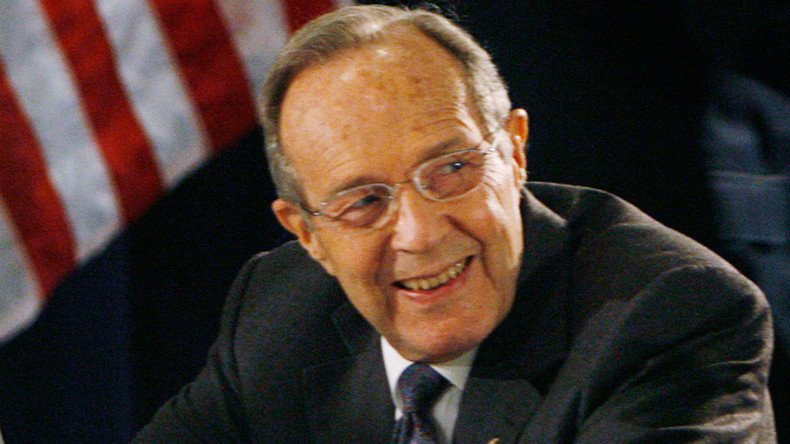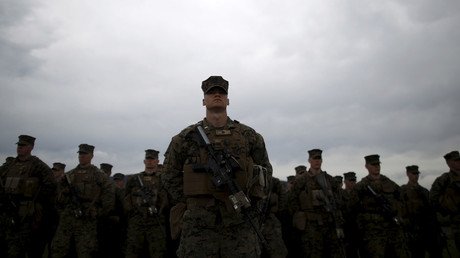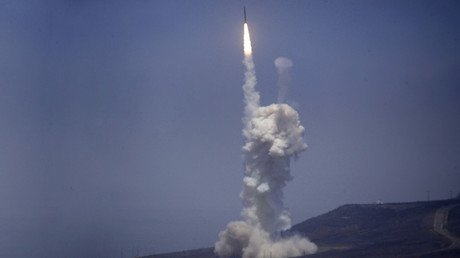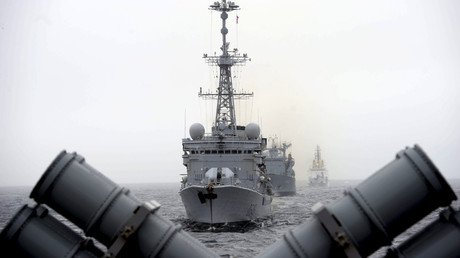Washington to blame for souring relations with Russia – former US defense chief

Consistent disregard of Russia’s interests by the US, as well as Washington’s dismissive attitude towards Moscow in the post-Cold War era, have led to strained relations between the two, former US Defense Secretary William Perry told the Guardian.
READ MORE: NATO can’t fight Russians in Europe, says leading US think tank
Perry, who served as defense secretary in Bill Clinton’s administration from 1994 to 1997, said at a Guardian Live event in London on Wednesday that he believes significant improvements were achieved in relations between the US and Russia, including in the sphere of military cooperation, in the early years after the collapse of the Soviet Union.
However, that course eventually came to naught. Perry said that a complete lack of regard for Russia as a power or a dialogue partner from Washington officials played a crucial role in this reversal.
While criticizing Russia’s current policy on Syria and Ukraine and blaming it for the current diplomatic crisis, Perry pointed out that, in earlier years, it was the United States’ policy that “deserves much of the blame” for the eventual cooling of relations between Moscow and Washington.
Reckless expanding NATO, making plans to deploy a missile defense system in Eastern Europe, and supporting the so-called “color revolutions” in former Soviet republics were all steps in the wrong direction, which were all taken without ever even considering Russia’s concerns, according to Perry.
“Our first action that really set us off in a bad direction was when NATO started to expand, bringing in eastern European nations, some of them bordering Russia. At that time we were working closely with Russia and they were beginning to get used to the idea that NATO could be a friend rather than an enemy ... but they were very uncomfortable about having NATO right up on their border and they made a strong appeal for us not to go ahead with that,” Perry said.
However, that appeal was utterly ignored due to the contemptuous attitude of policymakers in Washington, who openly referred to Russia as “a third-rate power,” Perry said.
“That point of view got across to the Russians as well. That was when we started sliding down that path,” he said.
In his memoir, My Journey at the Nuclear Brink, Perry claimed that he had advocated expanding NATO more slowly so as not to alienate Russia and even considered resigning over the issue. He described having arguments with other US officials, including then-vice-president Al Gore, who believed that Russia’s interests were not worth taking into account.
Perry also denounced the George W. Bush administration’s decision to station a US missile defense system in eastern European countries – particularly in Poland – as Washington’s second major misstep. The move provoked a protest from Moscow at the time, as well a reason for further confrontation in the future.
“The issue again wasn’t discussed on the basis of its merits – it was just ‘who cares about what Russia thinks.’ We dismissed it again,” Perry said, blasting the plan to create a missile shield as “a waste of money” against hypothetical threats.
READ MORE: How EU & NATO exploited Ukraine to serve their own geopolitical goals (OP-ED)
The initial Eastern Europe scheme was later scraped by President Obama, who replaced it with a phased Aegis Ballistic Missile Defense System plan involving different interceptor missiles with shorter range. The first part of that system went online at Romania’s Deveselu airbase in 2015, and another is due to be deployed in Poland in 2018.
Another serious blow to bilateral relations between Moscow and Washington came due to US support of the so called “color revolutions,” which led to the overthrow of elected governments in a number of former Soviet republics, including Georgia and Ukraine. The active American backing of anti-government movements and coups gave Moscow a reason to expect similar attempts to overthrow the Russian government, Perry stressed.
“After he came to office, [Russian President Vladimir] Putin came to believe that the United States had an active and robust program to overthrow his regime,” the former US defense secretary said, adding he thinks that it is this belief that has made the Russian leader reluctant “to work with the West.”
Perry also warned that the ongoing tensions between Russia and NATO have “the potential of becoming very dangerous” and called for a radical reduction in both countries’ nuclear arsenals, including all land-based intercontinental ballistic missiles.
Russian officials have consistently stated that it is not Moscow that has been seeking a Russia-NATO confrontation, pointing out that NATO is the one that keeps expanding, militarizing Russia’s bordering states, and trying to tip the balance of strategic power, which includes nuclear deterrence.
READ MORE: Lavrov: Russia open to widest possible cooperation with West
Foreign Minister Sergey Lavrov stressed earlier in March that a policy of confrontation with the West is not something that Moscow wants.
“We are not seeking confrontation with the United States, or the European Union, or NATO. On the contrary, Russia is open to the widest possible cooperation with its Western partners. We continue to believe that the best way to ensure the interests of the peoples living in Europe is to form a common economic and humanitarian space from the Atlantic to the Pacific, so that the newly formed Eurasian Economic Union could be an integrating link between Europe and Asia Pacific,” Lavrov said.















